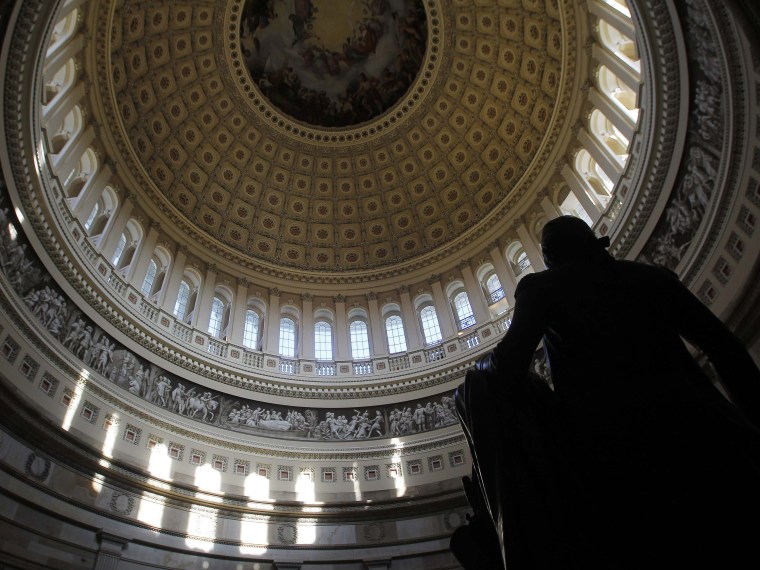Fox News' Chris Wallace interviewed Rep. Hakeem Jeffries (D-N.Y.) yesterday about Donald Trump's possible impeachment, and when the discussion turned to public opinion and recent polling, the host reminded the congressman of a relevant detail:
"It's clear that there is none of the bipartisan support that Speaker Pelosi said for months was essential to impeachment."
Donald Trump, evidently, was pleased with Wallace's observation.
Last week, Sen. John Kennedy (R-La.) made a related point during a CNN interview:
"[T]he reason I'm offended by what's going on in the House, this will be the first partisan impeachment in the history of our country."
If the word "partisan" is going to be at the heart of the debate in the coming weeks, it's worth pausing to appreciate its meaning and relevance.
Wallace's observation, for example, was rooted in truth: House Speaker Nancy Pelosi (D-Calif.), a longtime skeptic of pursuing Trump's impeachment, initially argued that bipartisanship was a prerequisite to drawing articles. It's also true that polling shows roughly 1 in 10 Republican voters support the ongoing impeachment process, and that's clearly a low number.
Pelosi shifted her position, however, when evidence emerged that Trump extorted a vulnerable U.S. ally, hoping to pressure a foreign government into helping him cheat in the 2020 election. Or put another way, the House Speaker revisited her impeachment standards, at least as they relate to public-opinion polling, when Trump's brazen abuses of power left her little choice.
But Kennedy's point is the more problematic one. As the Louisiana Republican sees it, the House's impeachment inquiry isn't just "partisan," it's "the first partisan impeachment in the history of our country."
First, as a matter of history, this is difficult to take seriously. As historian Kevin Kruse recently explained, "Only two presidents have actually been impeached by the House, and both times it unfolded in an overwhelmingly partisan process."
Second, Kennedy's underlying point seemed to be that if members of the White House's party stand with their scandal-plagued president, that should effectively end the matter. A legitimate process, the argument goes, is one in which both sides are in broad agreement about the merits and seriousness of the allegations.
That may seem like a nice idea, but in contemporary politics, it creates a dynamic in which one party, guided by tribalism and fear of a right-wing backlash, expects to effectively wield veto power over impeaching their own party's president, regardless of the evidence against him.
Indeed, to a very real degree, Kennedy's complaint gets the story backwards. As the senator sees it, Trump's impeachment is wrong because Republicans oppose it. Given the mountain of evidence against the president, isn't the better question why GOP lawmakers are prepared to ignore Trump's brazen abuses? Isn't that far more offensive than Democrats moving forward with a process on their own?
